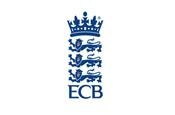The England and Wales Cricket Board (ECB) recently announced plans for an English Premier League (EPL), a domestic Twenty20 competition involving all 18 counties, plus two overseas teams. The tournament is the latest in a series of initiatives. In November, an England team will travel to the Caribbean island of Antigua for the first in a $100m series of winner-takes-all matches against the Stanford All Stars, a team funded by billionaire Texan financier Sir Allen Stanford.
Next year, England will host the second ICC World Twenty20 Cup. The final of the inaugural tournament was won by India last year, and drew a TV audience of 400m. Finally, a Twenty20 Champions League, featuring top clubs from England, India, South Africa and Australia, will debut later this year.
The surge in interest in Twenty20 opens up opportunities for the ECB, which, according to John Taylor of Sports Impact, who has negotiated previous ECB deals on behalf of Npower and Tetley, has always struggled to attract FMCG brands. 'Cricket was always seen as too traditional and too skewed toward older, AB males,' says Taylor, 'It mainly appealed to financial services and insurance brands.'
The commercial director of the ECB, John Perera, says that the governing body's annual income is about £70m, with broadcast rights accounting for 75% of that figure. Sponsorship, licensing and ticket revenue make up the remainder.
The England team is sponsored by Vodafone and Adidas, which supplies the players' kit for Test matches, one-day internationals and Twenty20 games. Npower sponsors UK Test cricket, NatWest supports the international one-day game, and the ECB has a roster of second-tier sponsors, such as Volkswagen, Hugo Boss and Marston's.
The majority of these contracts are due to expire at the end of the 2009 season, and Perera will use the lure of the EPL to appeal to brands in the UK and overseas.
'I would like to see more Indian brands entering English cricket,' says Perera, highlighting the game's strong links to an emerging economy of more than 1bn people. 'The design of the EPL, with two foreign teams and overseas players, helps us to sell rights back into the Indian marketplace.' He adds that this gives cricket an extra dimension not shared by sports such as rugby union.
The scale of the opportunity is indicated by the launch of the Indian Premier League (IPL) this April, which generated more than £500m in TV rights alone. In total, India accounts for about 75% of global income from the sport.
However, there is a fear among cricket's traditionalists that Twenty20 will eclipse Test cricket and undermine the domestic county game. 'Care must be taken that they don't over-do the shorter version of the game, which is tempting, given how lucrative it has become,' says Taylor.
For now, at least, Test matches retain their appeal, and next season will see the return of the all-conquering Australian team in the tussle for the Ashes. TV audiences for the last Ashes series, in 2005, regularly reached 8m on Channel 4. It culminated in the victorious England team parading through London in an open-top bus.
However, only a fraction of the number who watched the 2005 series will have access to next year's TV coverage of the Ashes. This follows ECB's controversial decision to sell the rights to all England games to Sky Sports, in a contract worth £220m over four years.
'It is a weakness in the ECB's strategy,' notes Taylor, adding that the most marketable players, such as Kevin Pietersen and Andrew Flintoff, need continued terrestrial exposure to become mainstream celebrities.
The hope for the English counties, the bedrock of the professional game in the UK, is that the launch of the EPL will open up national marketing budgets to the sport. Suzi Kent, head of marketing and communications at Surrey County Cricket Club, says attendances for Twenty20 have risen every year since it's inception in 2004.
The club lists freesheet Metro among its partners, but Kent adds that most counties tend to attract only local companies. 'Twenty20 has yet to yield an influx of FMCG brands,' she says.
Selected ECB partner brands
England team sponsors
- Vodafone
- Adidas
Domestic broadcasters
- Sky
- Five
- BBC Radio
- TalkSPORT
ECB partners
- Fragrance and clothing Hugo Boss
- Beer Marston's
- Media Telegraph Media Group
- Energy drink Red Bull
- HR Hewitt
- Water Buxton
ECB suppliers
- Kit Adidas
- Automotive Volkswagen
- Coach Go Goodwins
- Champagne Veuve Clicquot


